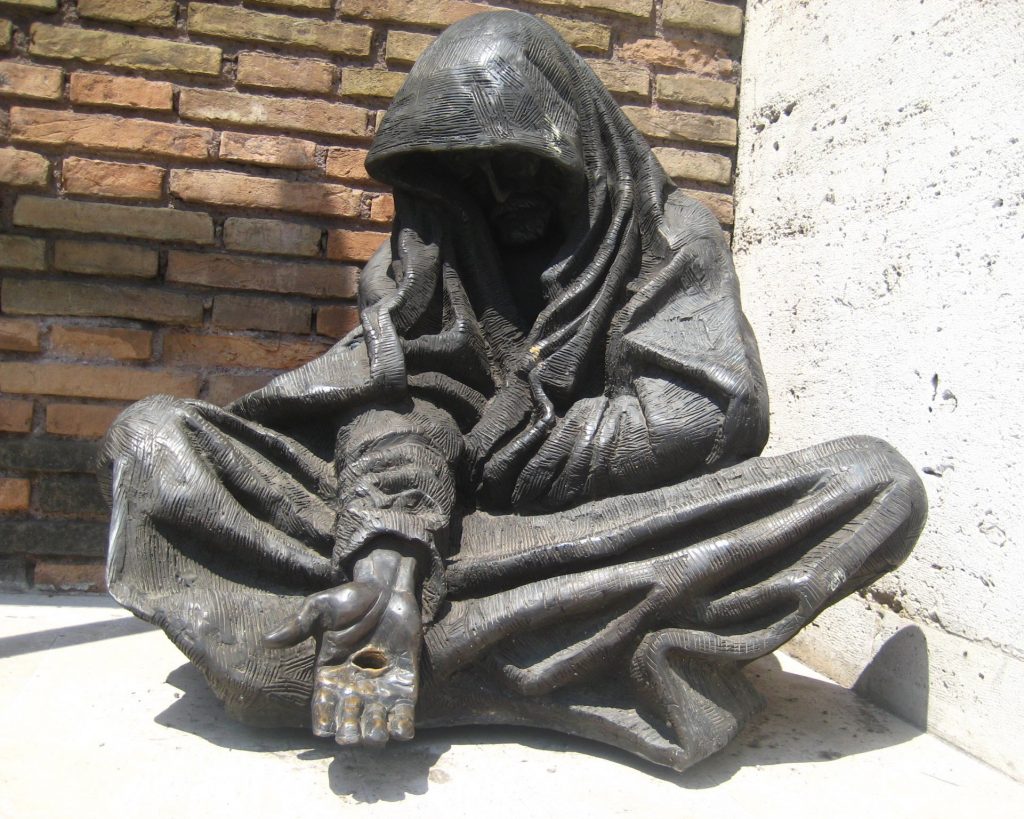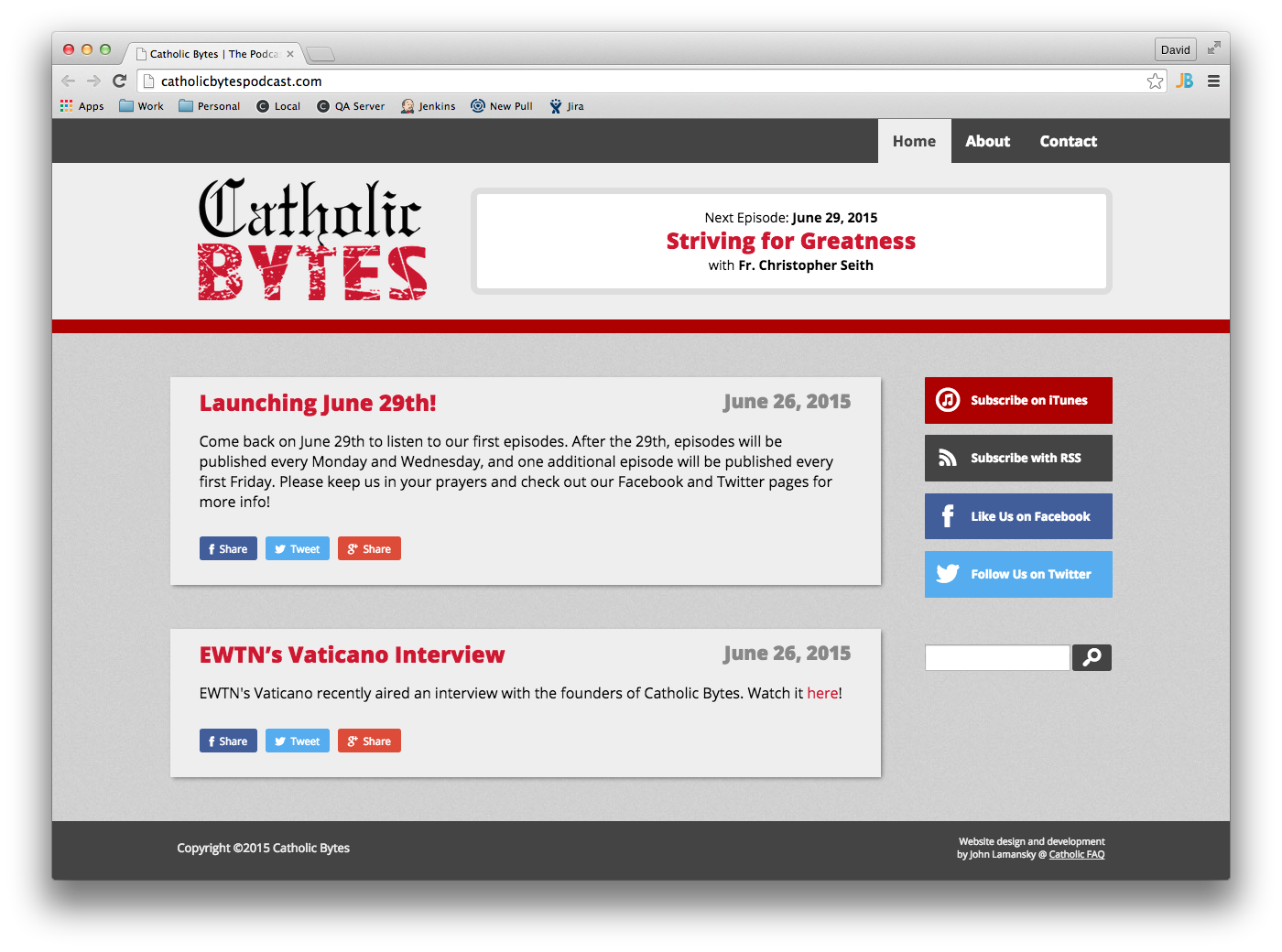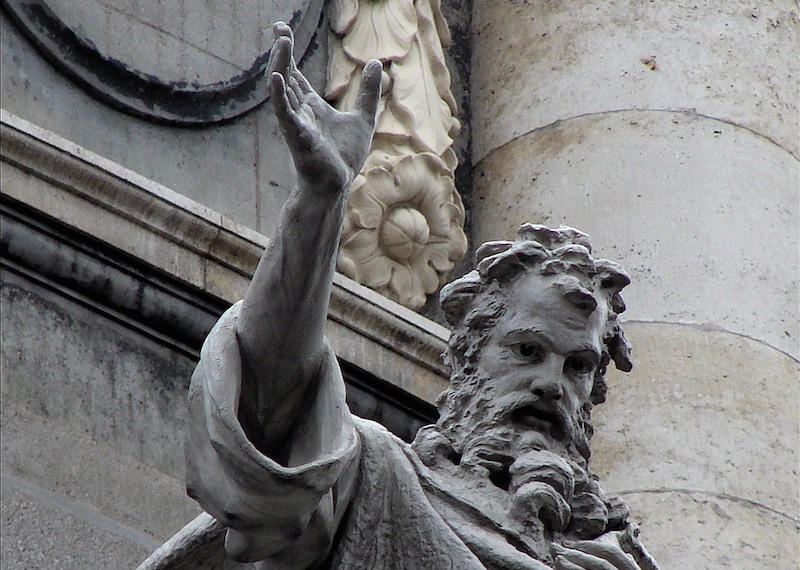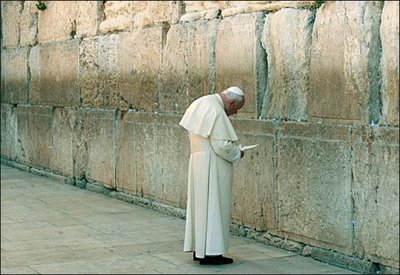Christ In Rome
I saw this pop up in my Facebook memories and wanted to share it again. This is my favourite statue of Christ in Rome. When my buddy Joe was in Rome several years ago, I sent him on a scavenger hunt to find it…

"We are travellers…not yet in our native land" – St. Augustine
I saw this pop up in my Facebook memories and wanted to share it again. This is my favourite statue of Christ in Rome. When my buddy Joe was in Rome several years ago, I sent him on a scavenger hunt to find it…


I first visited Rome at the start of 2009 to celebrate my Mum’s birthday. I returned again at the end of that year on pilgrimage with friends from Washington DC. Both of these trips were wonderful and secured a fondness in my heart for both Italy in general, and for its historic capital in particular.
 Happy Feast of the Assumption/Dormition 🙂
Happy Feast of the Assumption/Dormition 🙂

My friend Joe is studying at the North American College in Rome, where he’s surrounded by brilliant English-speaking Catholics from around the globe: classmates, professors, and various luminaries who pass through their halls while doing more important things. Together with some of his classmates, they’ve decided to take advantage of this fact and create a regular Catholic podcast: interviewing experts in liturgy, theology, Church history, and several other fields.
 The result is Catholic Bytes podcast (CatholicBytesPodcast.com): it’s designed to be frequent (once or twice a week), short (under 10 minutes), clear (we’ve got multiple reviewers doing quality control), and orthodox. Oh, and the first episode got released today…enjoy 🙂
The result is Catholic Bytes podcast (CatholicBytesPodcast.com): it’s designed to be frequent (once or twice a week), short (under 10 minutes), clear (we’ve got multiple reviewers doing quality control), and orthodox. Oh, and the first episode got released today…enjoy 🙂

A while ago, I had a chap called Roscoe commenting on my blog, denying the Catholic claims concerning St. Peter and the See of Rome. In response, I quoted St. Irenaeus, one of the most important witnesses concerning the Church at Rome:
“…that tradition derived from the apostles, of the very great, the very ancient, and universally known Church founded and organized at Rome by the two most glorious apostles, Peter and Paul; …which comes down to our time by means of the successions of the bishops. For it is a matter of necessity that every Church should agree with this Church, on account of its preeminent authority…
…The blessed apostles, then, having founded and built up the Church, committed into the hands of Linus the office of the episcopate [of Rome]. Of this Linus…Anacletus…Clement…[and] Eleutherius does now…hold the inheritance of the episcopate.
“In this order, and by this succession, the ecclesiastical tradition from the apostles, and the preaching of the truth, have come down to us. And this is most abundant proof that there is one and the same vivifying faith, which has been preserved in the Church from the apostles until now, and handed down in truth
– Against Heresies III.3.3 (c. AD 180)

In reply to my quotation of Irenaeus, Roscoe wrote the following:
There are no historical facts to support the idea that Peter and Paul founded the church at Rome. Rome was over 1000 miles away from where they were. We can see what Peter was doing in Acts and he was not in Rome at this time. Most likely the faith was brought there by pilgrims who were converted in the early chapters of Acts.
Roscoe’s main argument seems to be:
1. Irenaeus says Peter and Paul “founded” the church at Rome.
2. Jews from Rome were present at Pentecost and converted to Christianity. It would have most likely been these Christians who would have brought the faith to Rome.
3. Irenaeus is proven demonstrably wrong and therefore his testimony concerning Rome should be regarded as extremely dubious.
I’ve heard this kind of argument a few times in the comment section of other blogs, so today I’d like to respond to it…
The previous bucket list task of lighting a votive candle was rather simple. This next bucket list item is a little more involved…
Bucket List Item #4: Go on pilgrimage
The Catholic Church has an extremely rich history of pilgrimage. From the earliest times Christians have travelled to places of significance for the Christian faith. The hope in visiting such places is that the pilgrim’s faith will grow and that he would be enriched by process of the journey. The journey is itself an allegory for the Christian journey through life, a pilgrimage towards Heaven.

Pope John Paul II in Jerusalem
A few years ago I went on a pilgrimage to Rome with some friends from Washington DC. We spent a wonderful few days touring the sights and praying in some of the most beautiful churches on earth.
Sadly, this weekend I received a message on Facebook that one of the priests who accompanied us, Fr. Bill Dunn, recently died. A doctor for thirty years before entering the seminary, he was a kind and gentle soul. I hadn’t met him prior to our trip, but he and I had the opportunity to become better acquainted on one of our itinerary-free days in “The Eternal City”. We ended up wandering around the city in a search for the best cappuccino money could buy:
The natural human response at the death of a friend is one of mourning, sadness at being physically parted from a loved one. For the Christian, however, death is not the end. As Christians, we also respond with thanksgiving, praising God for allowing us to share in the life of one who loved the Lord so deeply. Finally, the Catholic also responds with petition, that God will have mercy on our friend’s soul and grant entrance into Heaven. I say it is a Catholic’s natural response but, in truth, I think it is the natural response of every Christian, Catholic or otherwise. We want the best for our loved ones, in this life and the next, so we naturally want to intercede for them in this life and the next.